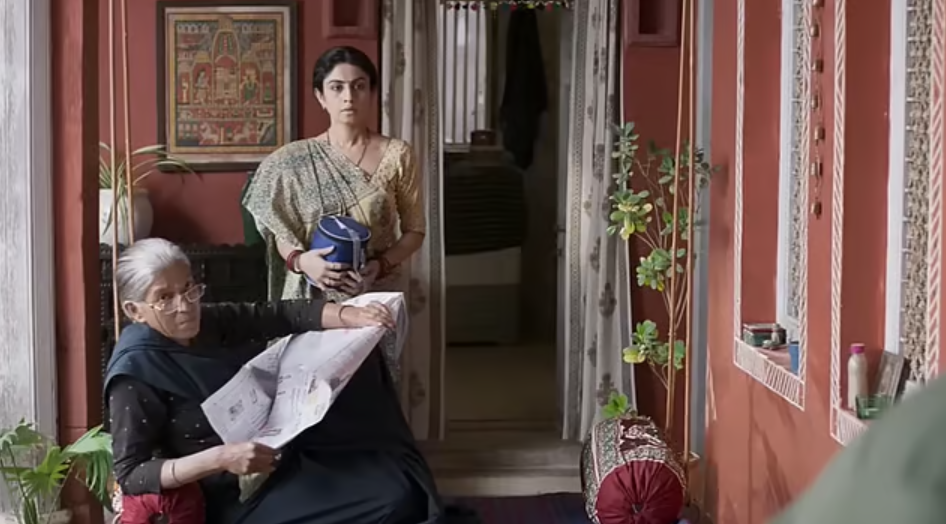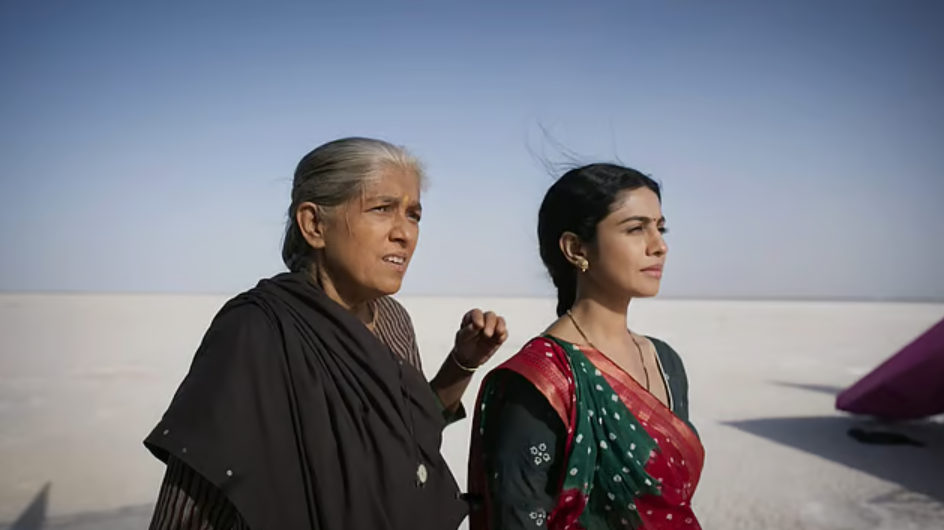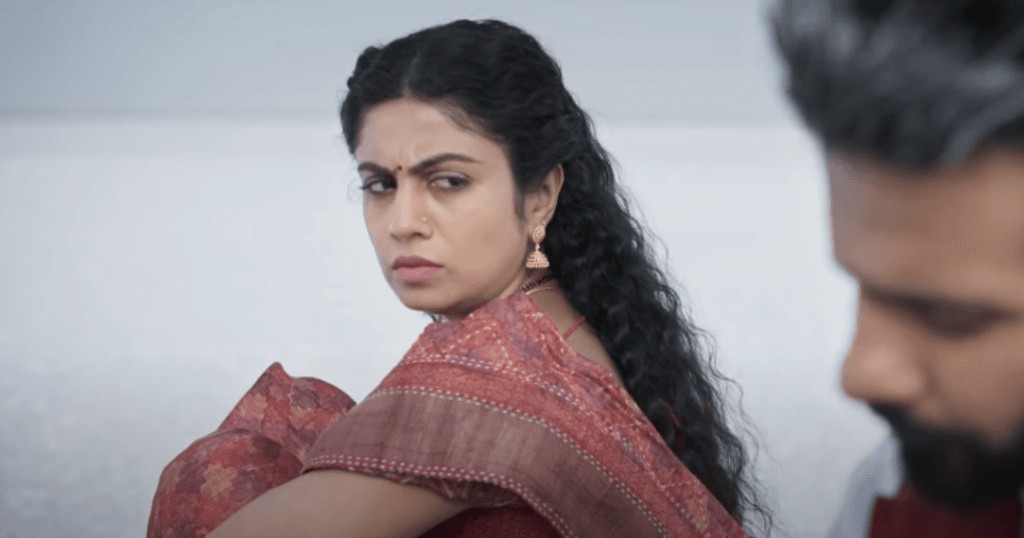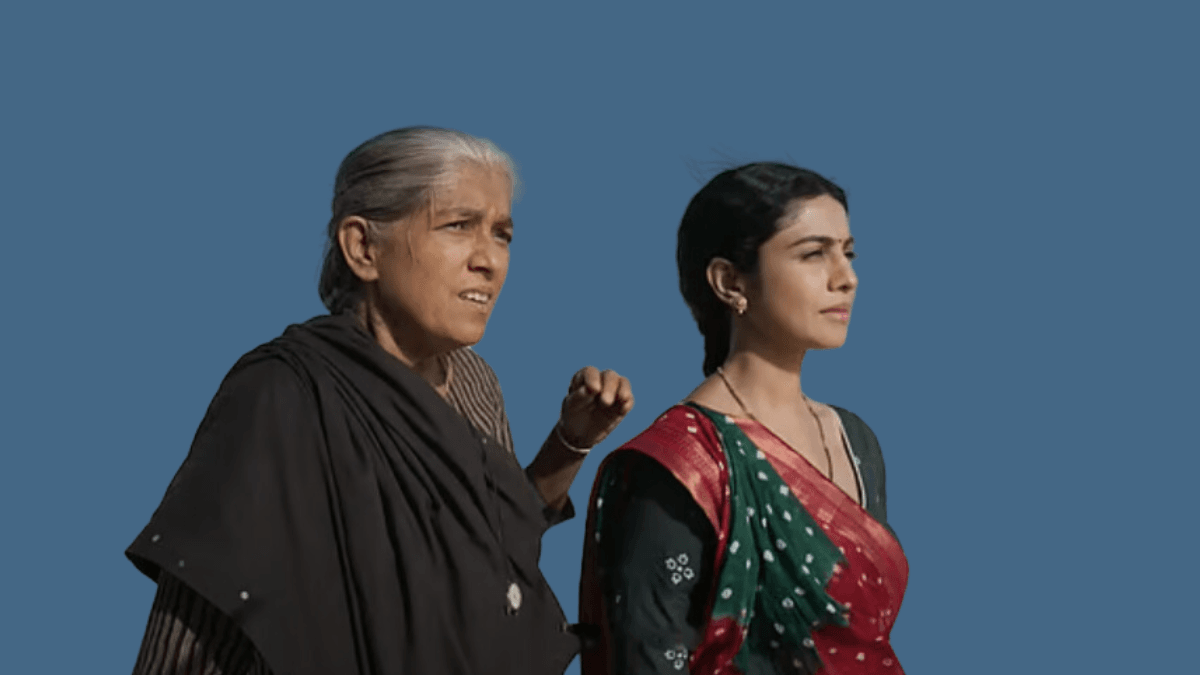Throughout the history of Gujarati cinema, we have seen the marginalisation of women. Most of the films have been based on mythologies and regional folk stories, where women are depicted as ideal feminine figures. However, the Gujarati film Kutch Express, like the film Hellaro, challenges the patriarchal norms and reinforces the ideas of equity on the basis of gender.
The theme of the film goes around the life of a woman called Monghi, her struggle, small victories, her joyous bond with her mother-in-law, her bond of compassion with her son, her bond of friendship, and her bond of love and rage with her husband. This film also creates a space where feminist solidarity exists, and it also deconstructs the ideas of women fighting each other over silly things.
The central theme of the Kutch Express is that Monghi’s husband starts cheating on her and makes relations with his son’s ex (who used to be his senior in school). The film also shows from Monghi’s gaze how it feels when a loved one suddenly disappears; for that, Monghi starts blaming the young girl, but later on, with time, she realises it was her husband’s blame too. This film does not just show the plight of Monghi and other women, but it portrays the resistance and empowerment of women of the village. The artwork that women do as part of their cultural duty becomes the tool for resistance for them.
Sisoti—space for women’s leisurely activity in Kutch Express
In the film, women of the village have a secret society called Sisoti, where at the end of the week at nighttime women meet in one part of the village. And Sisoti has rules that women can share their plight there and enjoy each other’s company. This space is not just a secret society, but it has also become a space for leisure for women.

Women are involved with various activities in Sisoti, like smoking, which society does not consider as normal, especially for women. This space also creates feminist solidarity despite the fact that Monghi and her mother-in-law both are part of this secret society, upper class and upper caste. Another important rule in this secret society is to critically engage with conversations about their husbands and men of the family and how toxicity impacts their lives.
Encouraging and helping each other financially, socially, and emotionally also became an important part of Sisoti, where women develop special relationships with each other.
Creation of feminist solidarity
As scholar Adrienne Rich’s concept of “woman-identified experience” suggests, solidarity arises from shared oppression. All of these women are facing the same oppression of patriarchal structures. One scene where all the women of the village stand together with Monghi when she is going through a tough time due to her husband’s cheating is perhaps the best scene of solidarity in the film.

Another scene where, in Sisoti, Monghi wins the competition and wins the money, she refuses to take that money and gives it to another woman of Sisoti who needs that money due to a financial emergency. This incident also shows that helping each other in tough times makes the solidarity stronger.
This feminist solidarity is not just limited to women characters, but it goes beyond. An example would be Monghi’s son, who also feels oppression through ideas of toxic masculinity, taught by his father. But in the end he comes over this toxic masculinity and becomes a strong support for his mother, which transcends feminist solidarity beyond gender.
Deconstructing the stereotypical relations of mother-in-law and daughter-in-law
Most of the Indian films and TV shows portray the relationship between Mother-in-law and daughter-in-law as enemies, both fighting for the attention of men of the family and controlling domestic affairs of home. But the film Kutch express breaks this depiction and shows a friendly bond between Monghi and her mother-in-law. When Monghi’s husband cheats on her, her Mother-in-law is the one of the first people who stand by her, rather than being supportive of her own son she chooses to support her daughter-in-law.
In the household, where Monghi’s husband passes subtle sexist comments on her, her mother-in-law is the one who scolds Monghi for not speaking up and her son for not behaving well with her wife. The bond between both of them helps each other to fight against patriarchal control by Monghi’s husband. Baji, Monghi’s mother-in-law, is also part of Sisoti, where she helps other women and Monghi come out from patriarchal control.
Folk art of Kutch as tool of resistance for women in Kutch Express
Folk art mostly became a tool for leisurely activity for women of rural areas, and in many cases, it empowers women and makes them more independent. Like in the film Hellaro, where Garba becomes a tool for resistance, here in Kutch Express, folk art becomes a tool of resistance.

Making art is not just an activity, but it binds all women of the village together and creates feminist consciousness among them. Various art forms, like painting, crafts, and traditional Kutchi embroidery, also provide these women financial independence.
One character in the film, Madan, is a tourist in Kutch and an artist. He is a sensitive feminist man who helps these women to reclaim their space through art. He became a close friend of Monghi; there we see a stark contrast with Monghi’s husband. Monghi’s husband feels offended when Monghi has a male friend, but on the other hand, when he had a female friend, he didn’t find it problematic. This shows the plight of Monghi and other women in patriarchal norms.
Kutch Express goes beyond just a woman’s experience; it encapsulates the experience of many women who are in search of respect and liberty. The film deconstructs the societal celebration of femininity stereotypes and presents an authentic portrayal of a woman’s struggle. The camera work and Kutch’s artistic tapestry add even more significance to the narrative, which allows the audience to feel the story, thus making it one of social importance.
Kutch Express stands out from the rest of the films in the industry that unfortunately reduce women to background characters. It does not only show forms of cultural and identity violence, but also the phenomenon of self-assertion and self expression.
About the author(s)
Faga Jaypal is a final year history student at Sri Venkateswara College, University of Delhi, with a keen interest in intellectual history, gender and sexuality studies, social justice, and cultural studies. Passionate about literature, books, and museums, he combines his love for storytelling with academic research. Aspiring to become a teacher like Mr. Keating, he seeks to explore history through diverse narratives.





